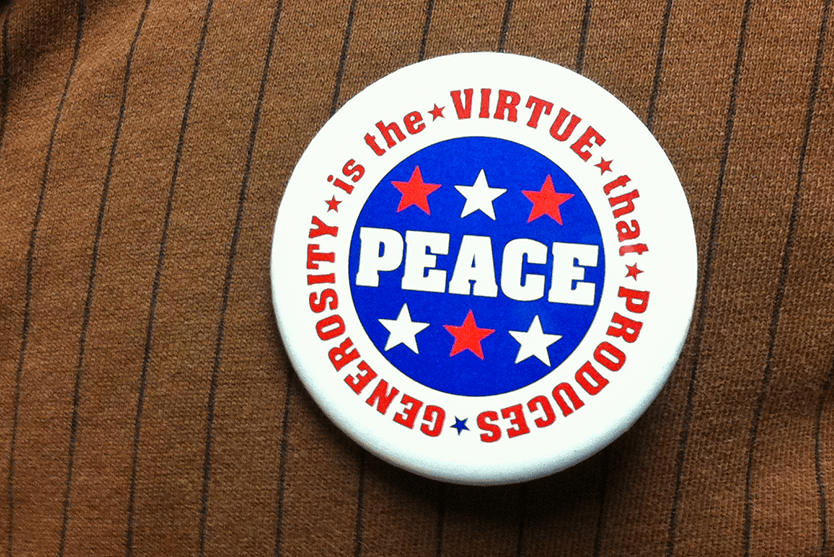When the roof of your house is on fire, you can’t worry about the cracks in the foundation.
For many of us, this is the scariest moment of our political lives—the possible election of an unstable demagogue as the most powerful political figure on earth. But when the Trump crisis is over—as it must be, not only for the sake of the country but for the world—then we can turn our attention again to the long-term healing of a wounded society and the hope for a better, more enlightened politics.
Real change comes from values we generally identify as spiritual. Many are discussed in this issue, which offers political wisdom from many of today’s leading Buddhist thinkers and teachers. Loving-kindness, clear seeing, compassion, respect, open-mindedness, and a deep sense of interconnection with others and the earth—these are the virtues that transform our lives and society. But how do we put them into practice?
The best answer I have found is a single line in a traditional Buddhist meal chant. It is a simple and practical political formula:
Generosity is the virtue that produces peace.
Generosity—dana paramita—is the first of Buddhism’s six transcendent perfections, because it is the foundation of all the others. Similarly, generosity is the foundation of a peaceful and compassionate society. It heals divisions, fights injustice, eases suffering, and creates bonds of love among us.
On an individual level, our generosity toward others creates the empathy, understanding, and goodwill that overcome prejudice and divisiveness. One of generosity’s great strengths is that it’s so straightforward. It contains no hint of condescension or superiority. It helps people reconcile because it doesn’t require agreement, just goodwill. It fights stereotypes because a generous spirit does not get caught in concepts. It both respects people’s differences and sees our common humanity.
At the political level, there’s another word for generosity: spending. The truth is, you can solve problems by throwing money at them. Better-paid teachers mean better education. More public housing means less homelessness. More financial support means less poverty and fewer underfed children. More community policing means safer neighborhoods.
Yes, we’ll pay more in taxes—that’s the generosity part—but in return we’ll live in a more loving and peaceful society that cares for all its citizens. That is the implicit bargain of social democracy, and it’s a good one.
Generosity is effective, doable, and beyond partisan politics. When we give with generosity, it transforms our inner life, our relationships with others, and our society. It is the virtue that produces peace.
Generosity may be the foundation of a better society, but as I said earlier, if the roof’s on fire you have to deal with that first. We should have no illusions about how much is at stake in this U.S. election. Please make sure to vote, particularly if you live in a swing state, so that tomorrow, November 9, we can resume the job of building a more just, sustainable, and, yes, generous society.
